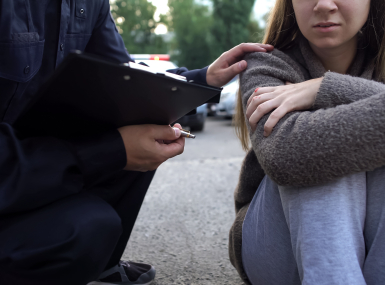FEMA says locals take lead in alerting residents of a nuclear attack

FEMA: states know their residents, resources and regional challenges best - they should provide messaging in event of a nuclear attack
If the nation ever came under nuclear attack, local governments would be responsible for warning residents, according to the Federal Emergency Management Agency (FEMA).
The question about whom should be responsible comes on the heels of the false emergency alert that went out Jan. 13 in Hawaii, causing widespread panic.
FEMA’s National Warning System Operations manual states: “Local authorities sound the Attack Warning signal on public warning devices and distribute the Attack Warning declaration to the public, news media, institutions, government agencies, and industry.”
Local governments and states, “have a process by which they notify their citizens of a threat,” FEMA Acting Press Secretary Jenny Burke said. “The content of the message, and the actions the public should take, are dictated by the specific threat and events unfolding on the ground. States know their residents, regional challenges and available resources best, and therefore are most appropriate to provide specific safety action messages, to include evacuation/remain in place notifications.”
In Hawaii, Maui County Councilmember and former NACo President Riki Hokama said “I’m leaning to federal responsibility versus state or local.” If another similar situation occurred in Hawaii, with an erroneous message about a nuclear attack sent out by the state, that blame should fall on the federal government, he said. “If it happens again, it’s because our federal government allows it,” he said.
Leaving the process to local governments would be a problem, according to Nick Crossley, president of the International Association of Emergency Managers-USA and director of the Hamilton County, Ohio Emergency Management and Homeland Security Office. “The problem is there is no system set up to notify us of an attack,” he said.
“It’s the federal government that monitors the air space and any kind of missiles coming from overseas, and they have access to wireless emergency alerts, every cell phone is required to receive it from the president,” he said. “It is their responsibility to notify the possible impact area, because there is no system in place to tell us if an attack is imminent. You’re talking about having five minutes to 30 minutes warning that there’s a possible incoming attack; why would you waste time? If the federal government calls to tell us an attack is imminent, how do I verify who they are? I called the state of Ohio after the Hawaii incident and they said it’s a federal responsibility.”
It should be similar to the National Weather Service sending out tornado warnings, Crossley said.
Francisco Sanchez, Jr., deputy emergency management coordinator, Harris County, Texas, who also sits on FEMA’s National Advisory Council, says that any warning of a nuclear attack should come straight from the federal government.
“I would argue, along with a lot of my emergency management colleagues from local jurisdictions across the country, that we are not the best suited as a local office of emergency management to be the initiator of an alert about a nuclear event or a military matter,” he said.
The time factor, Sanchez said, makes it less than ideal for local authorities to be the ones to alert residents of a nuclear attack. “If you tell us that a missile is coming, I don’t know that we’re the ones that are in the best position to get that alert out in a timely and accurate way,” he said.
Legislation recently introduced in Congress backs the idea of the federal government’s being the primary messenger in the case of a nuclear attack. U.S. Sens. Brian Schatz (D-Hawaii), Kamala Harris (D-Calif.) and Cory Gardner (R-Colo.)recently introduced the Authenticating Local Emergencies and Real Threats (ALERT) Act, legislation that would give the federal government the sole responsibility of alerting the public of a missile threat, prohibiting state and local governments from doing so.
“States are laboratories of democracy,” Schatz, the ranking member on the Commerce Subcommittee on Communications, Technology, Innovation and the Internet, said in a statement. “They should not be the laboratories of missile alerts. The people who know first should be the people who tell the rest of us. This legislation makes clear that the authority to send missile alerts rests with the federal government.”
Attachments
Related News

House passes legislation to increase the Crime Victims Fund
On January 12, the House passed the Crime Victims Fund Stabilization Act (H.R. 909) by a voice vote.

CMS requires state Medicaid suspension upon arrest versus termination
Effective January 1, 2026, federal law now requires states to suspend, rather than terminate, Medicaid coverage when an individual is incarcerated.

